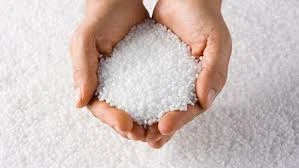Understanding API (Active Pharmaceutical Ingredient) in the Pharmaceutical Industry
Active Pharmaceutical Ingredients (APIs) are the substances in pharmaceutical drugs that provide the therapeutic effect. The significance of APIs within the pharmaceutical industry cannot be overstated, as they are the key components that deliver the desired medicinal properties to patients. This article explores the importance, production process, and regulatory considerations surrounding APIs to highlight their role in the healthcare sector.
The development of APIs is a complex and intricate procedure that often involves extensive research and development (R&D). The journey begins with the identification of a potential biological target related to a specific disease. Researchers then synthesize compounds that can interact with this target. Once potential candidates are identified, they undergo rigorous preclinical and clinical testing to ascertain their efficacy and safety before being approved for use in drug formulation.
Understanding API (Active Pharmaceutical Ingredient) in the Pharmaceutical Industry
Quality control and assurance are paramount in API manufacturing, as they directly affect drug safety and efficacy. Regulatory agencies such as the U.S. Food and Drug Administration (FDA) and the European Medicines Agency (EMA) impose strict guidelines to ensure that APIs meet specific standards. These regulations cover various aspects of production, including facility sanitation, raw material quality, and documentation of processes. Companies must comply with Good Manufacturing Practices (GMP) to guarantee that APIs are produced consistently and safely.
api active pharmaceutical

The globalization of the pharmaceutical supply chain presents both opportunities and challenges in API production. Many pharmaceutical companies outsource API manufacturing to countries where production costs are lower. While this can lead to significant cost savings, it also raises concerns about the quality and safety of APIs produced overseas. Issues such as varying regulatory standards and the potential for substandard materials necessitate robust quality control mechanisms at every stage of the supply chain.
Moreover, the API market is continuously evolving due to advancements in technology and growing demands for personalized medicine. Innovations such as continuous manufacturing and process analytical technology (PAT) are revolutionizing how APIs are produced, allowing for more efficient and flexible manufacturing processes. As the pharmaceutical industry shifts towards targeted therapies and biologics, the demand for highly specialized APIs is expected to rise.
In recent years, the COVID-19 pandemic underscored the critical importance of API manufacturing in ensuring public health. The rapid development of vaccines and treatments highlighted the need for a robust and resilient API supply chain. Governments and regulatory bodies have also recognized the need to strengthen domestic manufacturing capabilities to mitigate the risks associated with reliance on foreign suppliers.
In conclusion, APIs are at the heart of pharmaceutical development, playing an essential role in producing effective and safe medications. The complexities of API manufacturing, coupled with the ever-evolving regulatory landscape and global supply chain dynamics, make it a critical area of focus for the pharmaceutical industry. Moving forward, ensuring a sustainable and efficient API production process will be vital to meet the healthcare needs of the global population.

